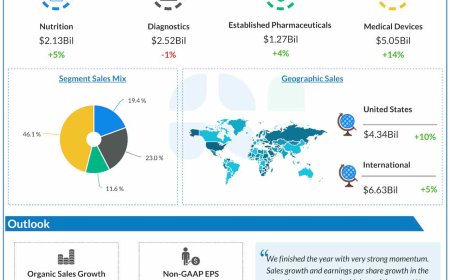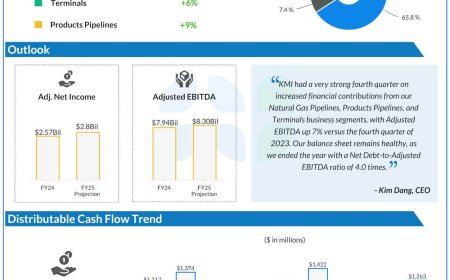USD / CAD - Canadian dollar spinning its wheels
- Canada Retail Sales expected to have risen in October - US PCE Price index data key focus today - USD hanging on to this week’s gains, opens on a mixed note. USDCAD: open 1.4384, overnight range,1.4371-1.4436, close 1.4399, WTI $68.64, Gold, $2604.26 The Canadian dollar was an afterthought in overnight trading and started today’s session slightly higher than its Thursday close. The currency is trading under a negative backdrop due to ongoing political upheaval in Ottawa. The sudden resignation of Finance Minister Chrystia Freeland on Monday is still reverberating through the markets. Her departure, combined with a 50% increase in the 2024-2025 budget deficit, is weighing on the loonie. Adding to the pressure is the recent Bank of Canada decision to cut interest rates by 50 bps and signal further cuts, while the Federal Reserve suggested it could pause rate cuts if inflation resurges. Canada October retail Sales are expected tor rise but the data is too stale to matter, especially after the BoC and FOMC monetary policy decisions. The U.S. November Personal Consumption Expenditure Price Index data is expected to rise to 2.9% y/y from 2.8% in October. A higher-than-expected result could spark another USD rally. Global risk sentiment has worsened after the U.S. government failed to pass a debt ceiling bill. A partial government shutdown looms, beginning Sunday if no deal is reached. EURUSD fluctuated within a 1.0343-1.0398 range following its post-FOMC losses. Incoming President Trump added to the bearish sentiment with a statement on Truth Social: “I told the European Union that they must make up their tremendous deficit with the United States by the large-scale purchase of our oil and gas. Otherwise, it is TARIFFS all the way!!!” GBPUSD traded in a 1.2475-1.2529 range and faced challenges this week. The FOMC decision to lower projections for rate cuts in 2025 sent the pair tumbling, but it found temporary relief after the Bank of England kept rates steady at 4.75% due to economic uncertainty. However, today’s weaker-than-expected retail sales data (0.2% m/m versus the 0.5% forecast) reinforced concerns about a sluggish economy. USDJPY churned within a 156.62-157.93 range as markets grappled with a hawkish Federal Reserve, a cautious Bank of Japan, and interventionist rhetoric from Japanese officials. Finance Minister Katsunobu Kato warned about sharp and speculative market movements and suggested appropriate measures would be taken to curb excessive fluctuations. AUDUSD traded defensively within a narrow 0.6215-0.6250 range, consolidating losses from the previous session. The pair remains under pressure due to uncertainties surrounding the U.S. budget situation.

- Canada Retail Sales expected to have risen in October
- US PCE Price index data key focus today
- USD hanging on to this week’s gains, opens on a mixed note.
USDCAD: open 1.4384, overnight range,1.4371-1.4436, close 1.4399, WTI $68.64, Gold, $2604.26
The Canadian dollar was an afterthought in overnight trading and started today’s session slightly higher than its Thursday close.
The currency is trading under a negative backdrop due to ongoing political upheaval in Ottawa. The sudden resignation of Finance Minister Chrystia Freeland on Monday is still reverberating through the markets. Her departure, combined with a 50% increase in the 2024-2025 budget deficit, is weighing on the loonie. Adding to the pressure is the recent Bank of Canada decision to cut interest rates by 50 bps and signal further cuts, while the Federal Reserve suggested it could pause rate cuts if inflation resurges.
Canada October retail Sales are expected tor rise but the data is too stale to matter, especially after the BoC and FOMC monetary policy decisions.
The U.S. November Personal Consumption Expenditure Price Index data is expected to rise to 2.9% y/y from 2.8% in October. A higher-than-expected result could spark another USD rally.
Global risk sentiment has worsened after the U.S. government failed to pass a debt ceiling bill. A partial government shutdown looms, beginning Sunday if no deal is reached.
EURUSD fluctuated within a 1.0343-1.0398 range following its post-FOMC losses. Incoming President Trump added to the bearish sentiment with a statement on Truth Social: “I told the European Union that they must make up their tremendous deficit with the United States by the large-scale purchase of our oil and gas. Otherwise, it is TARIFFS all the way!!!”
GBPUSD traded in a 1.2475-1.2529 range and faced challenges this week. The FOMC decision to lower projections for rate cuts in 2025 sent the pair tumbling, but it found temporary relief after the Bank of England kept rates steady at 4.75% due to economic uncertainty. However, today’s weaker-than-expected retail sales data (0.2% m/m versus the 0.5% forecast) reinforced concerns about a sluggish economy.
USDJPY churned within a 156.62-157.93 range as markets grappled with a hawkish Federal Reserve, a cautious Bank of Japan, and interventionist rhetoric from Japanese officials. Finance Minister Katsunobu Kato warned about sharp and speculative market movements and suggested appropriate measures would be taken to curb excessive fluctuations.
AUDUSD traded defensively within a narrow 0.6215-0.6250 range, consolidating losses from the previous session. The pair remains under pressure due to uncertainties surrounding the U.S. budget situation.











































